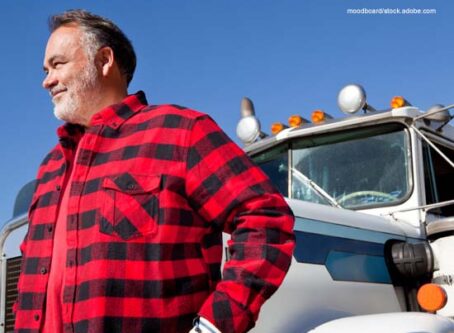Wisconsin bills permit certain heavier truck loads
Multiple bills moving through the Wisconsin Senate are touted to help reduce the number of trucks on roadways in exchange for permitting certain heavier truck loads.
The Senate Transportation and Local Government Committee has approved a bill that covers permits for overweight transport of pig iron.
Sponsored by Sen. Joan Ballweg, R-Markesan, SB363 would create a definition for metallic or nonmetallic scrap that is identical to the Wisconsin Department of Transportation’s definition for recyclable scrap, except that the new definition would explicitly include pig iron.
Ballweg described pig iron as a raw material that supports the utilization of scrap iron and steel to create new iron and steel products.
She told committee members her bill allows pig iron to be transported by trucks using the state DOT’s garbage, refuse and recyclable scrap permit, which allows trucks to carry overweight loads.
Ballweg added that until recently, carriers were able to transport pig iron under the aforementioned permit, but WisDOT began enforcing its interpretation that pig iron could not be transported using this permit. She said the changes would allow the metal-casting industry and its carriers to continue transporting pig iron at the weights they did previously.
“This will result in less trucks on the road and reduced transportation costs,” Ballweg testified.
To ensure federal funding is not affected, she amended the bill in committee to specify the heavier truck loads permit would not apply on highways designated as part of the national system of interstate and defense highways.
According to a fiscal analysis attached to the bill, the state DOT assumes an increase in heavy truck traffic would lead to “increased degradation of the pavement and structures.” The agency reported costs associated with maintenance and repair resulting from heavier truck loads cannot be adequately estimated.
Milk haulers
Another bill to advance from the Senate Transportation Committee covers the transportation of fluid milk products, including whey.
Also introduced by Ballweg, SB431 would authorize WisDOT to issue annual or consecutive month permits for truck loads hauling fluid milk products between processing facilities in vehicle combinations that exceed general highway weight limitations. The bill would authorize permits to operate affected vehicles up to 18,000 pounds in excess of the 80,000-pound maximum gross vehicle weight.
SB431 also would prohibit DOT from imposing different conditions for these permits for different fluid milk products. The bill defines fluid milk products as raw milk and liquid milk products and byproducts, including liquid whey and whey byproducts.
Ballweg noted that “whey has long been used as an animal feed and fertilizer, but today, the bulk of whey is further processed for sale as protein powder and other value-added dairy ingredients.”
She touted the change as allowing Wisconsin’s dairy industry to compete against other states that allow heavier weight limits for dairy products.
The bill’s fiscal analysis echoed the one for SB363. Additionally, the DOT analysis stated that without a definition of what all may be considered as “milk products,” the agency cannot estimate the types of commodities that might be transported or account for the number of load types that might be impacted.
Both SB363 and SB431 await consideration on the Senate floor. If approved, the bills would advance to the Assembly.
Forest products
One more bill still in the Senate Transportation Committee covers certain oversize and overweight truck loads transporting forest products.
Currently, WisDOT may issue an annual or consecutive month permit for an oversize or overweight vehicle to transport loads within 11 miles of the Wisconsin-Michigan line. Affected truck loads are limited to specifically designated highways, if the vehicle does not violate length or weight limitations under Michigan law.
Sponsored by Sen. Cory Tomczyk, R-Mosinee, SB484 would add 10 highway segments to the Michigan border permit. The list of affected highway segments is available.
Tomczyk told the committee the routes have sufficient structural and safety accommodations to allow affected trucks to operate without causing excessive damage or safety risks.
“With the addition of new routes to the Michigan border permit, this legislation reduces the total number of vehicle miles traveled; increases fuel efficiency, resulting in reduced emissions; and provides important cost savings for shippers and end-use consumers,” Tomczyk testified. LL









